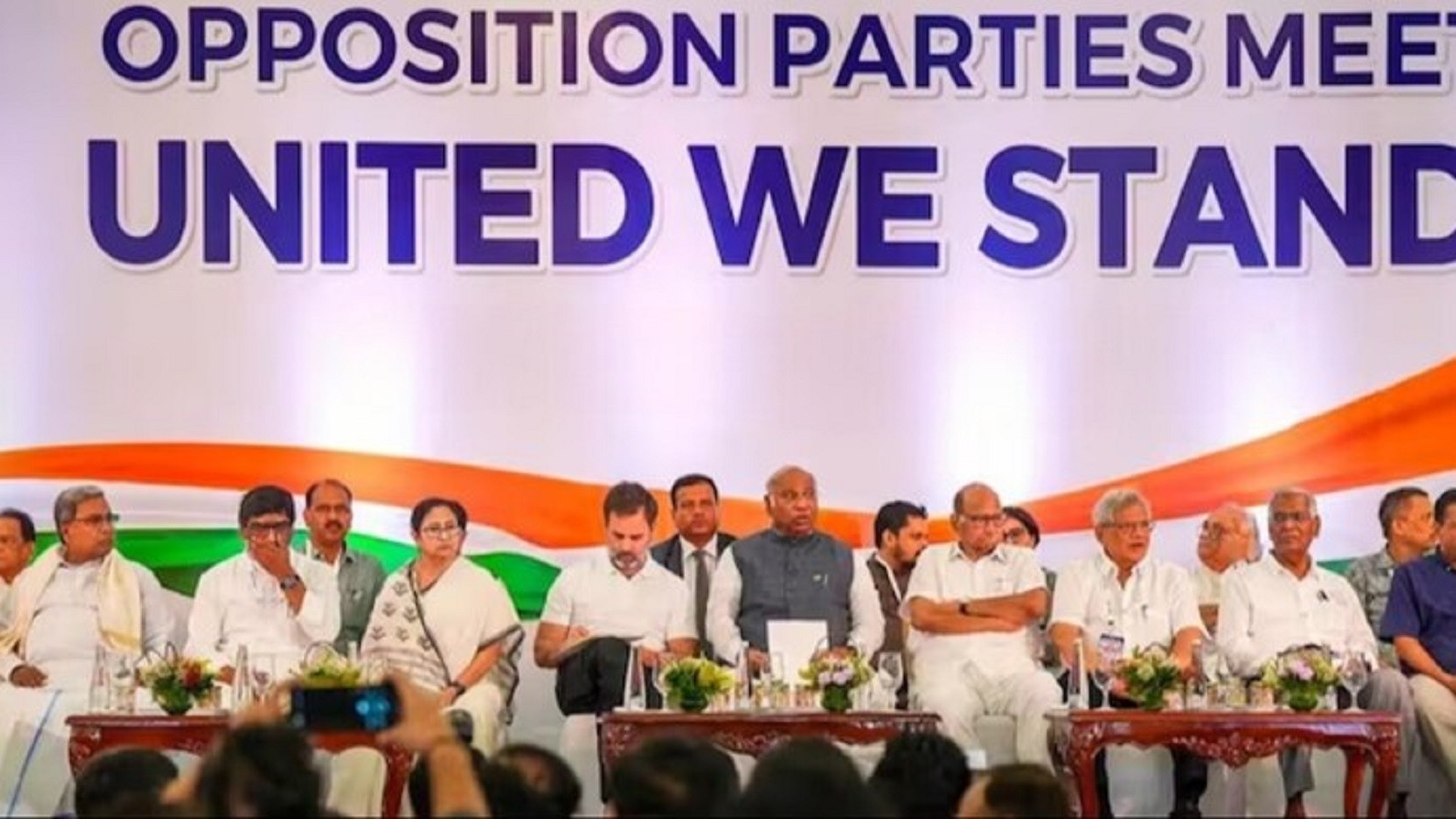
The election for the post of the Speaker of India’s newly-elected 18th Lok Sabha exposed the divisions in the opposition INDIA bloc. Most importantly, it showed the ham-handed manner in which the issue was handled by the opposition.
The election for the Speaker’s post was the first trial of strength between ruling BJP-led NDA and the opposition on the floor of the House since the parliamentary elections in the former emerged as the undisputed victor. That trial brought to the fore that while NDA was clear and firm in putting up its candidate Om Birla for a second tenure as Speaker, the opposition was wobbly in choosing its own nominee. Secondly, the opposition failed to put up a show of unity on whether it should have pressed for division of votes after Birla won by voice vote.
The fundamental question that arose is why the opposition chose to contest the Speaker’s election when it knew fully well that the Lok Sabha arithmetic was clearly in favour of NDA. In the House of 543 members, NDA had the support of 294 and were also boosted by the support of four MPs of regional party YSRCP and the opposition’s combined strength stood at 234.
The opposition, buoyed by their much better number in terms of seats in the Lok Sabha in recent elections, wanted to make a political statement by putting up its candidate. What was the purpose behind the statement? Apparently, the opposition wanted to draw political mileage from the fact its candidate K Suresh of Congress is a Dalit. Secondly, did the opposition hope that the Speaker’s election would test the unity among NDA allies? If that was so, it was sorely mistaken. As it turned out, the opposite happened. The opposition’s decision to put up its candidate scuttled a consensus and forced a contest.
Congress and some of its opposition allies set a condition that they are ready for a consensus on Speaker if NDA accepts their demand for the Deputy Speaker's post going to the opposition. By rejecting give-and-take with the opposition, NDA and BJP signalled that they have adequate control on the Lok Sabha and that they need not yield ground to the opposition despite NDA’s reduced numbers in the House. The INDIA bloc’s decision to contest the Speaker’s election appears to have stemmed from a misplaced belief that it is in a position to challenge the government right from day one in the new Lok Sabha. Immediately after the election results on June 4, the opposition, emboldened by its improved numbers, has been behaving as if it has won the poll.
The choice of Suresh as the opposition candidate saw initial fissures between Trinamool Congress and Congress as TMC claimed it was not properly consulted on it and Mamata Banerjee was not kept in the loop. This set off hectic parleys between TMC and Congress as Rahul Gandhi held talks with TMC general secretary Abhishek Banerjee and other leaders. This finally brought TMC around to support Suresh’s candidature. Media reports said Samajwadi Party and Nationalist Congress Party rued that the Congress leadership did not discuss with Mamata Banerjee prior to the decision to contest the Speaker’s election.
The fault-lines in the opposition camp was also in evidence after Protem Speaker Bhatruhari Mahtab declared that Birla won by voice vote and that the opposition did not press for division voting. Congress and other INDIA bloc allies did not press for division of votes. Congress spokesman Jairam Ramesh said on X “…..Voice vote was taken. Thereafter, INDIA parties could have insisted on division. They did not do so. This is because they wanted a spirit of consensus and cooperation to prevail….” But TMC contradicted it by saying several opposition MPs had demanded a division vote.
Taking the consensus route the Speaker’s election would have been the ideal thing to do. Consensus had for most occasions in the past guided the choice of Speaker. The last time the Speaker’s post witnessed a contest was in 1976. But politics in India has over the years become increasingly polarised and battle-lines are too hardened to make consensus a rare commodity. The latest Speaker’s election is a manifestation of that.
_______________________________
The writer is a veteran Indian journalist

